
Experiment with the Mediterranean diet
What’s the Mediterranean Diet?
The fact that some supermarket food carries the label ‘Mediterranean’ doesn’t mean that eating it transforms our diet into a Mediterranean diet. So how can we know what the Mediterranean diet is? In fact, it’s a lifestyle based on physical activity and a socially-enjoyed balanced diet. But let’s start with something we all know: the ‘Food Pyramid’. That must ring a bell. Although it may not have been well explained to you. People investigating the effects of the Mediterranean diet on the population’s health, such as the UMH EPINUT group, draw it as follows:
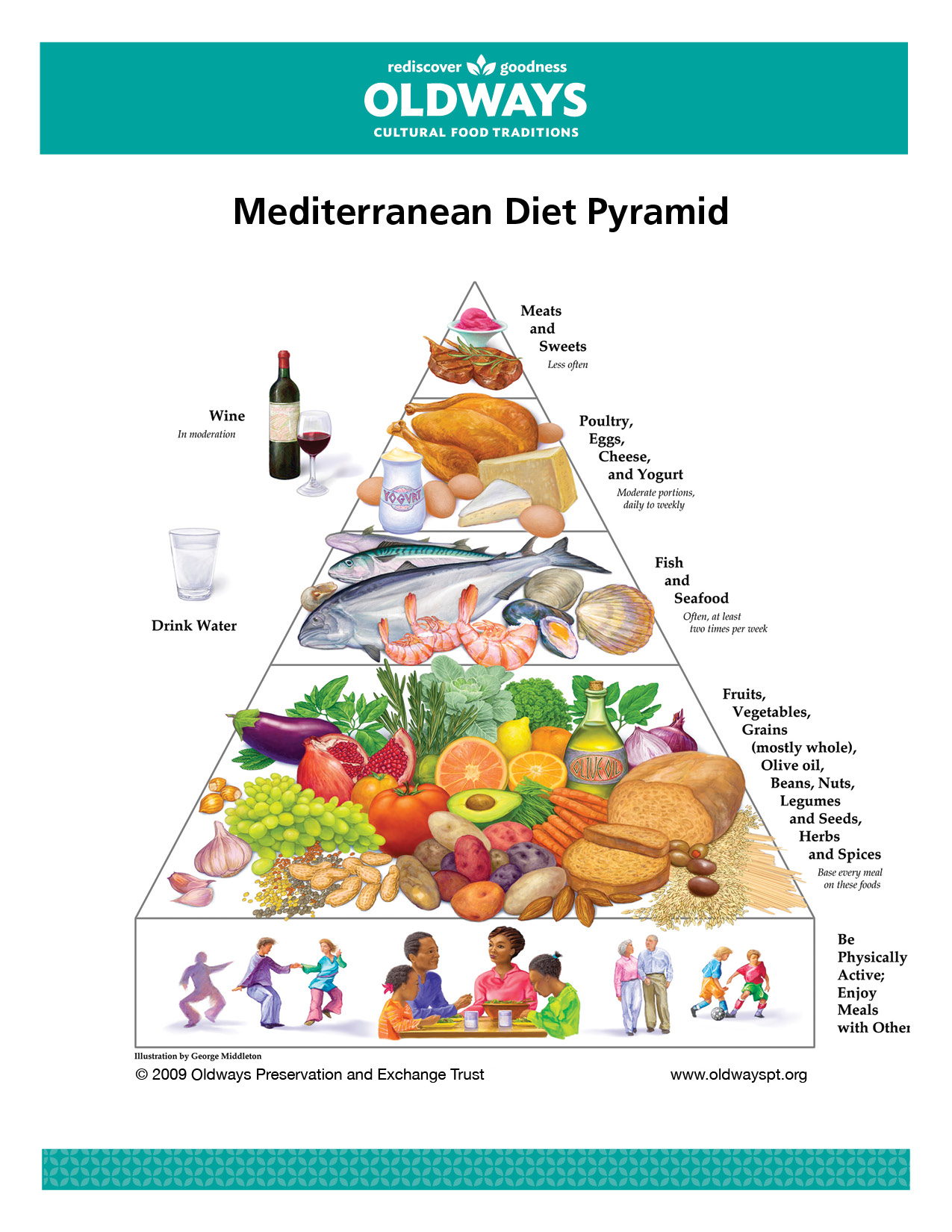
If you look at this drawing, you’ll see that the pyramid of the Mediterranean diet is based above all on….That’s it, vegetables! Lots of vegetables and also several pieces of fruit a day. Does juice count? No, it doesn’t, because when we drink fruit juice, even if it’s homemade, we’re taking the sugar of many pieces of fruit but fibre of less than one. At the base of the pyramid, we’ll also find the olive oil (a key ingredient), as well as legumes, walnuts or other plain nuts (not the fried or seasoned ones!), cereals, spices and other herbs.
After fruit and vegetables, in smaller quantities, we must eat fish. Less often, we’ll eat white meat, eggs and dairy products, and, occasionally, red meat and sugar. To make it clear: eating sweets ‘only once a day’ is NOT eating little sugar. For adults, it’s recommended to eat less than two portions of sugary food a week.
And what about drinks? It’s quite clear: the healthiest and most refreshing drink is water. No matter what advertisements say.
Food Domino (from 3 years on)
If you’ve already learned what healthy eating is, you’ve won a prize. Let’s practise, with a game, how to handle the sweetest part of the Mediterranean diet: fruit. Do you know how to play domino? It’s very easy. Print and cut out the 28 pieces you can download here. Find one to three friends to play with. Lay all the dominoes face down on the table and shuffle them well. If you are 2 players, choose 7 random dominoes. If you are 4, each one takes 5 dominoes. The youngest player starts by laying a double, for example, the double apple. Following the example, the next player must then lay one of the tiles with an apple on one side. If they don’t have any, they should pick one domino from the ones that are still facing down in the center of the table. The first player to lay all his fruit dominoes on the table wins. Sounds fun, right? And even tastier if you combine it with a snack of fresh and seasonal fruit.
Mediterranean Diet Recipes to Make with Children
The experts in the Mediterranean diet of the UMH EPINUT group recommend these tasty recipes to prepare at home. They’re all part of a balanced and healthy diet that helps prevent obesity and cardiovascular disease. They’re also really fun to prepare. Which one do you prefer: an almond hedgehog, a tomato flower, or a little fruit worm?
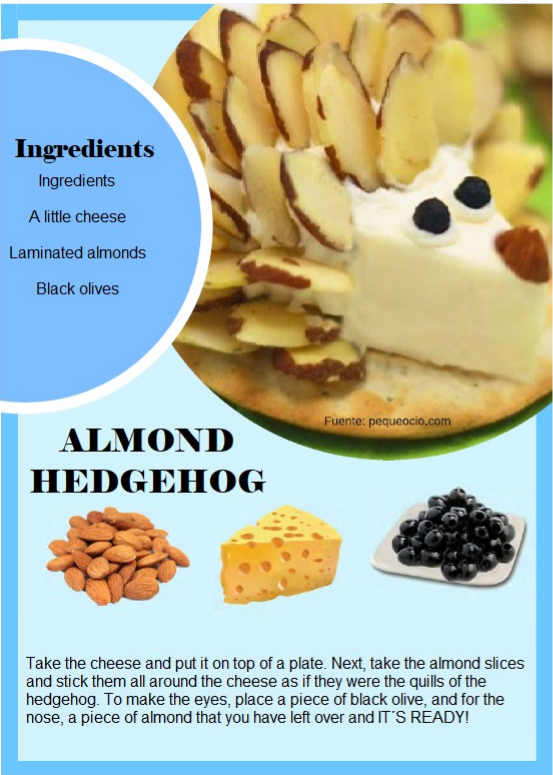
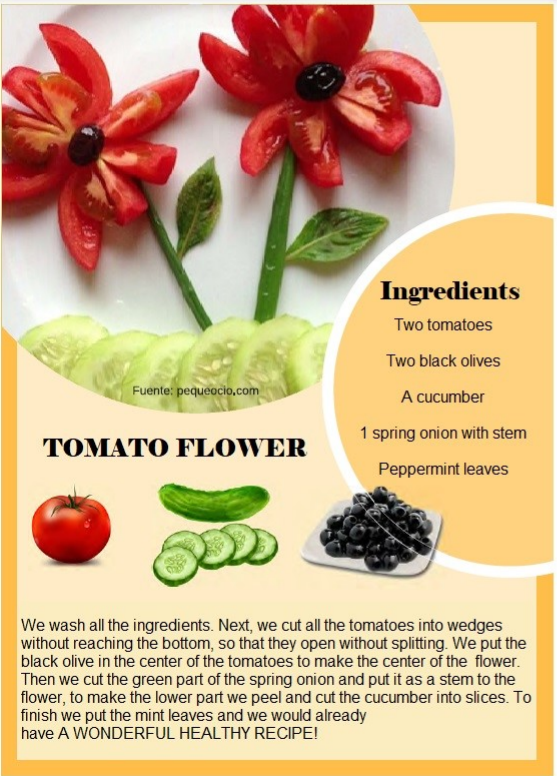
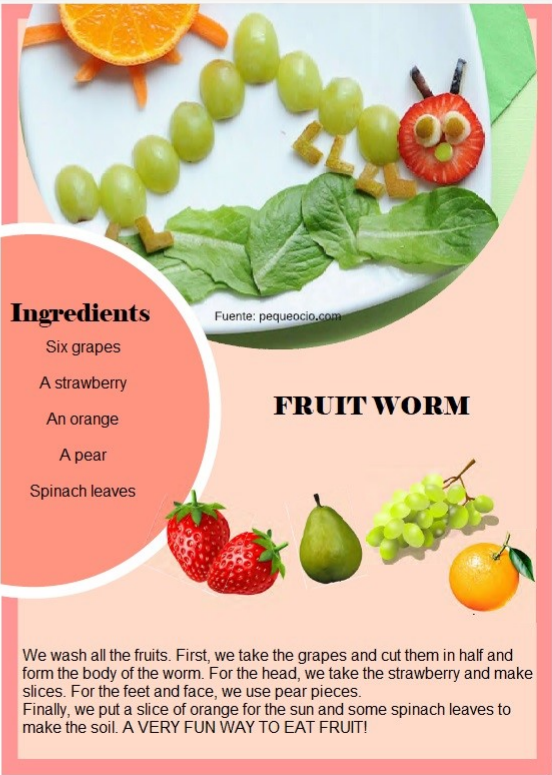
Why Is It So Important to Follow a Mediterranean Diet?
A study by researchers from the EPINUT Group of the UMH Jesús Vioque, Eva Mª Navarrete, Leyre Notario, Sandra González, Manuela García, and Desirée Valera showed that following the Mediterranean diet reduced the risk of overweight and obesity in children. To reach this conclusion, they collected data from more than 1,500 4-year-old children and studied what they ate during the next 4 years. Then, when the children were 8 years old, researchers checked the evolution of their weight and health. Impressive, right? This is what we call a cohort study, which follows the same people over a period of time to see their evolution. This method is very useful in nutrition epidemiology to analyze how different foods affect our health. But they explain it to you better in this video:
How Can I Find If My Diet Is Mediterranean?
You can do a self-assessment by yourself to really know whether you are following a Mediterranean diet.
You only have to answer 13 questions and give 0 points for each negative answer and 1 point for each positive answer. Your adhesion to the Mediterranean diet is high if you get 13 points, average if you get between 9 and 12, or low if you get 8 points or less. You can download the EPINUT UMH group questionnaire, with additional information about a healthy diet, on this link.
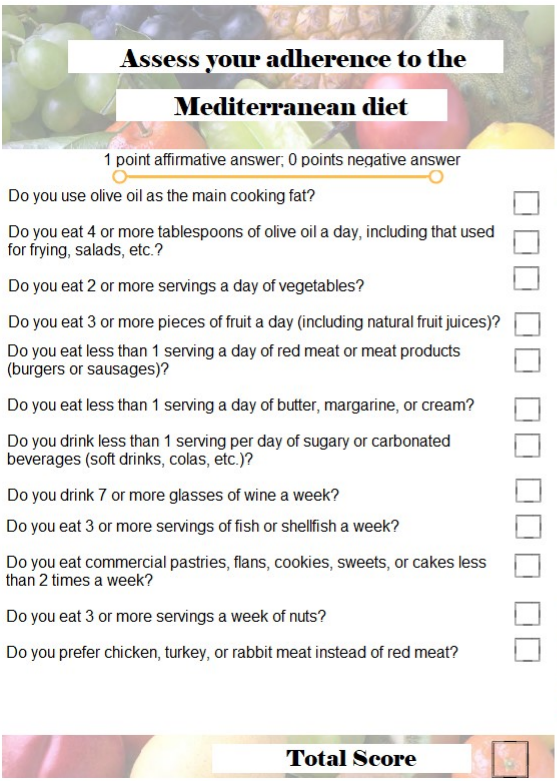
What’s Nutrition Epidemiology?
It’s the study of the relationships between health problems, disease, and the factors that cause them. As Dr Jesús Vioque, director of the EPINUT Nutrition Epidemiology Unit at the UMH, explains, ‘studying people is not easy’. Life’s very long and to study all the factors that can affect a person’s health, such as diet, one has to analyze the diet of a large population for many years. In addition, to affirm causal relationships between diet and health, several studies need to point to the same conclusion.
EPINUT’s team of researchers is composed of experts in medicine, epidemiology, psychology, nursing, nutrition, occupational therapy, statistics, and pharmacy. They also want to convey to everyone the importance of a healthy diet. To this end, EPINUT doctor Manuela García coordinates the group’s outreach activities, such as the one you’re taking part in now and the ones at the FEITELX fair.
Did you like these activities? You have much more available, for young and old, in the special ‘Science in your living room’
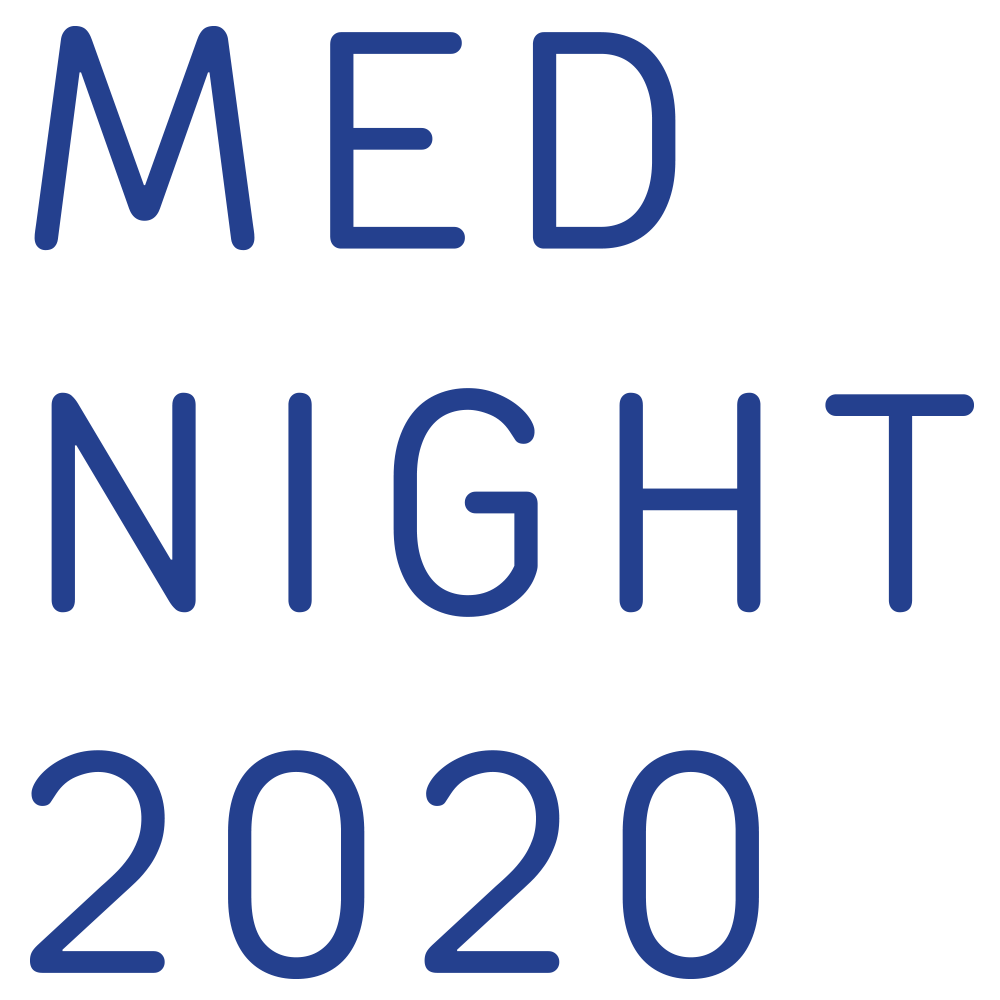
La “Mednight” nace como fruto de la colaboración de un consorcio de 12 entidades: Universidad Miguel Hernández de Elche, Universidad de Alicante, Universitat de València, Universitat Politècnica de València, Universitat Jaume I, Universidad de Murcia, Universidad Politécnica de Cartagena, Fundación Fisabio, Fundación Séneca – Agencia de Ciencia y Tecnología de la Región de Murcia, INCLIVA y el Consejo Superior de Investigaciones Científicas, bajo la coordinación de El Caleidoscopio y con el patrocinio de la Generalitat Valenciana a través de Fundación de la C.V. para el Fomento de Estudios Superiores (FFES), la Casa Mediterráneo, Las Naves y Distrito Digital de la Comunitat Valenciana.





